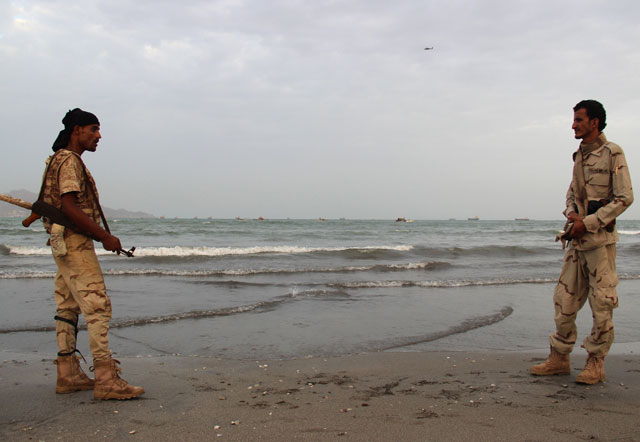ADEN — Deprived of sleep by temperatures of over 40 degrees, Azal Mohammed was among dozens of young men burning tyres last month to protest against persistent power cuts in Aden, a port city that was the capital of South Yemen.
Over the past 14 months, Aden's one million inhabitants have endured war and gang violence. The collapse of even basic public services has fuelled demands for the restoration of the southern state that merged with northern Yemen in 1990.
"We want the world, our neighbours, to help us win back our old state," said Azal, a 20-year-old student. "The south joined this union voluntarily and we don't want to be part of it any more."
South Yemen, a former British colony and the only Communist Arab state, united with the pro-Western north after a brief 1986 war. The collapse of South Yemen's financial patron, the Soviet Union, around the same time encouraged the unification process.
It was never a happy marriage: President Ali Abdullah Saleh's north Yemen dominated from the start and when the south tried to break away four years after unification, Saleh's army quickly crushed the separatists, cementing Sanaa's rule and Aden's decline, feeding southern resentment.
The current southern separatist movement grew out of a 2007 campaign demanding financial benefits for army officers and civil servants. Emboldened by 2011 anti-government Arab Spring protests that had forced Saleh to step down, southern separatists now want full independence.
Separatists control
Their demands gained momentum after Iran-allied Houthi forces invaded the capital Sanaa in 2014 and forced President Abed Rabbo Mansour Hadi to flee to Aden in February last year.
That precipitated a civil war that has sucked a Saudi-led Arab alliance into the crisis, in which thousands of air strikes had been launched against the Houthis.
The fighting — which has killed more than 6,400 people and displaced 2.5 million — has also allowed Al Qaeda to consolidate its presence in the country.
The conflict has hit access to basic supplies like food, fuel and medicine amid the coalition's near-blockade on ports.
Having played a key role in facing the Houthi offensive on southern Yemen, separatists now control most levers of power in Aden, where Hadi's government is currently based.
"The current situation shows the failure of the state to make any movement towards providing even basic services," said Khaled Murshed, a 40 year old employee at a state company.
"This reinforces the demands of regaining the southern state."
Queues and violence
Many Yemenis accuse Hadi and his government, which until this month had operated from Saudi Arabia, of paying only lip service to improving living conditions.
"Aden lives its worst days," said Azal, while the government enjoys "air-conditioned accommodation in Saudi Arabia".
Stung by growing criticism, Hadi's government rebased to Aden earlier this month promising to get down to business on improving living conditions in the city.
But residents poked fun at the government, after reports that Prime Minister Ahmed Bin Daghr protested at a meeting with city officials that the flag of the former South Yemen was flying over state buildings instead of the national colours.
The Yemeni government, which controls only parts of the country outside areas of northern Yemen held by the Houthis and its Saleh ally, acknowledges it has few sources of revenue to bring about major change.
Officials promised some relief following a deal with the United Arab Emirates — a main member of the Saudi-led coalition that has shouldered much reconstruction in Aden — to supply spare parts for the power plants and fuel supplies, according to the state-run Saba news agency.
But residents say Aden still receives about six hours of power every day, with the main power stations in the Khor Maksar and Al Mansoura districts out of service while the third one in Al Hiswah produces a quarter of its original capacity.
The power shortages have hit water supplies, hospitals and factories. Car owners often queue for three or four days to fill up, while bottled gas is so scarce many people use firewood.
Local hospitals say that at least nine elderly patients died in recent weeks due to the power cuts, and hospital managers say more are at risk due to a shortage of oxygen supplies. The only oxygen-producing plant is at a standstill due to lack of fuel.
"People are dying from the lack of electricity," said Umm Alaa Aleiwah, a mother of 10 children. "You should resign [Hadi] and leave it to others. May the lord of the world grace us with those who can fix the country."
